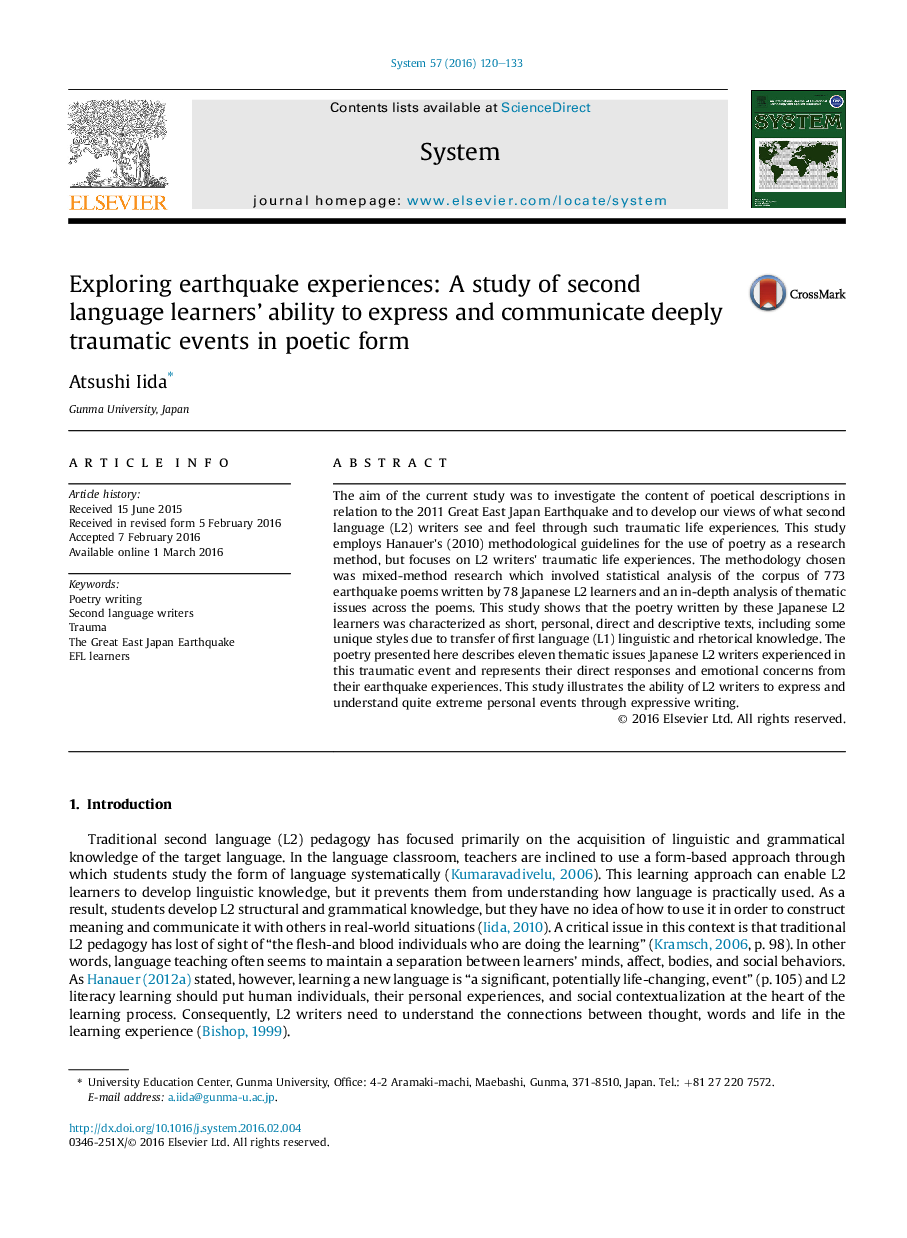| Article ID | Journal | Published Year | Pages | File Type |
|---|---|---|---|---|
| 372912 | System | 2016 | 14 Pages |
The aim of the current study was to investigate the content of poetical descriptions in relation to the 2011 Great East Japan Earthquake and to develop our views of what second language (L2) writers see and feel through such traumatic life experiences. This study employs Hanauer's (2010) methodological guidelines for the use of poetry as a research method, but focuses on L2 writers' traumatic life experiences. The methodology chosen was mixed-method research which involved statistical analysis of the corpus of 773 earthquake poems written by 78 Japanese L2 learners and an in-depth analysis of thematic issues across the poems. This study shows that the poetry written by these Japanese L2 learners was characterized as short, personal, direct and descriptive texts, including some unique styles due to transfer of first language (L1) linguistic and rhetorical knowledge. The poetry presented here describes eleven thematic issues Japanese L2 writers experienced in this traumatic event and represents their direct responses and emotional concerns from their earthquake experiences. This study illustrates the ability of L2 writers to express and understand quite extreme personal events through expressive writing.
